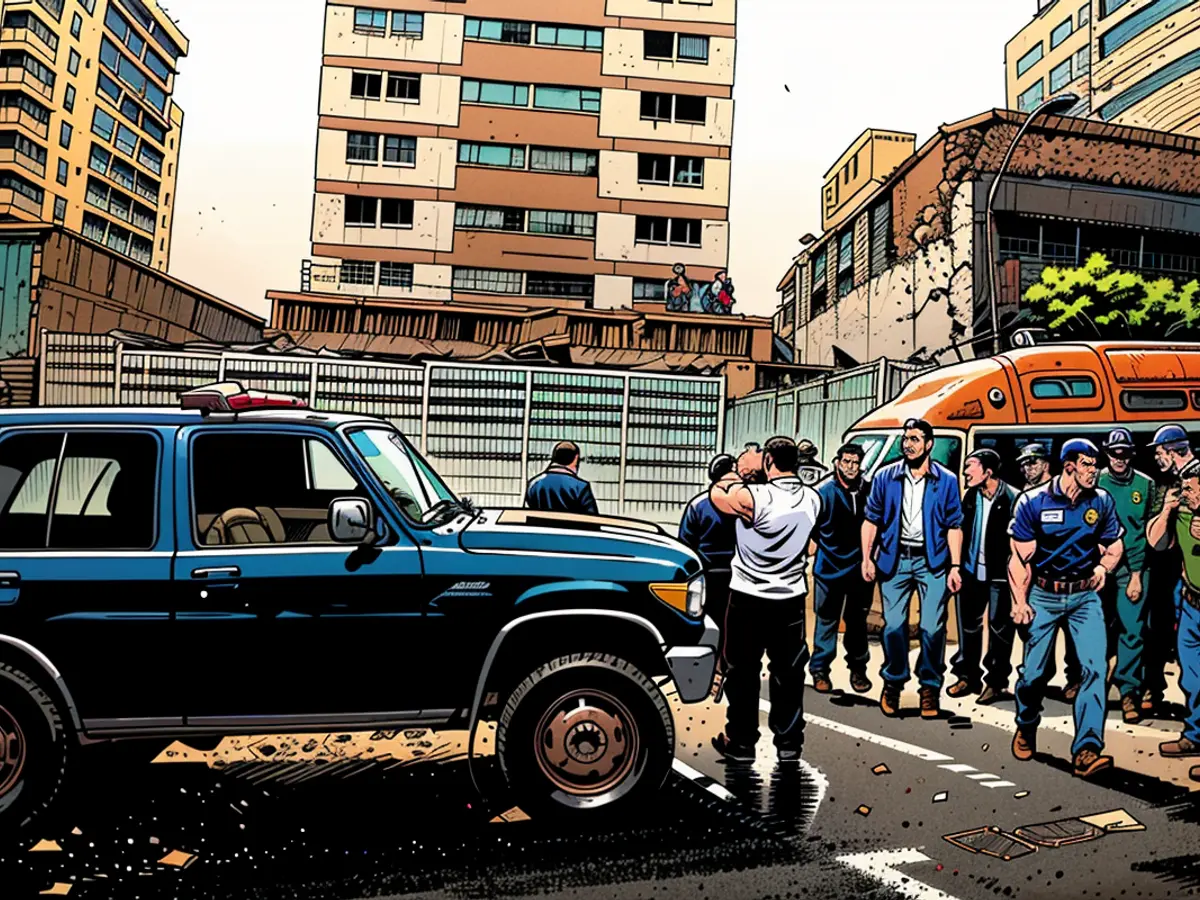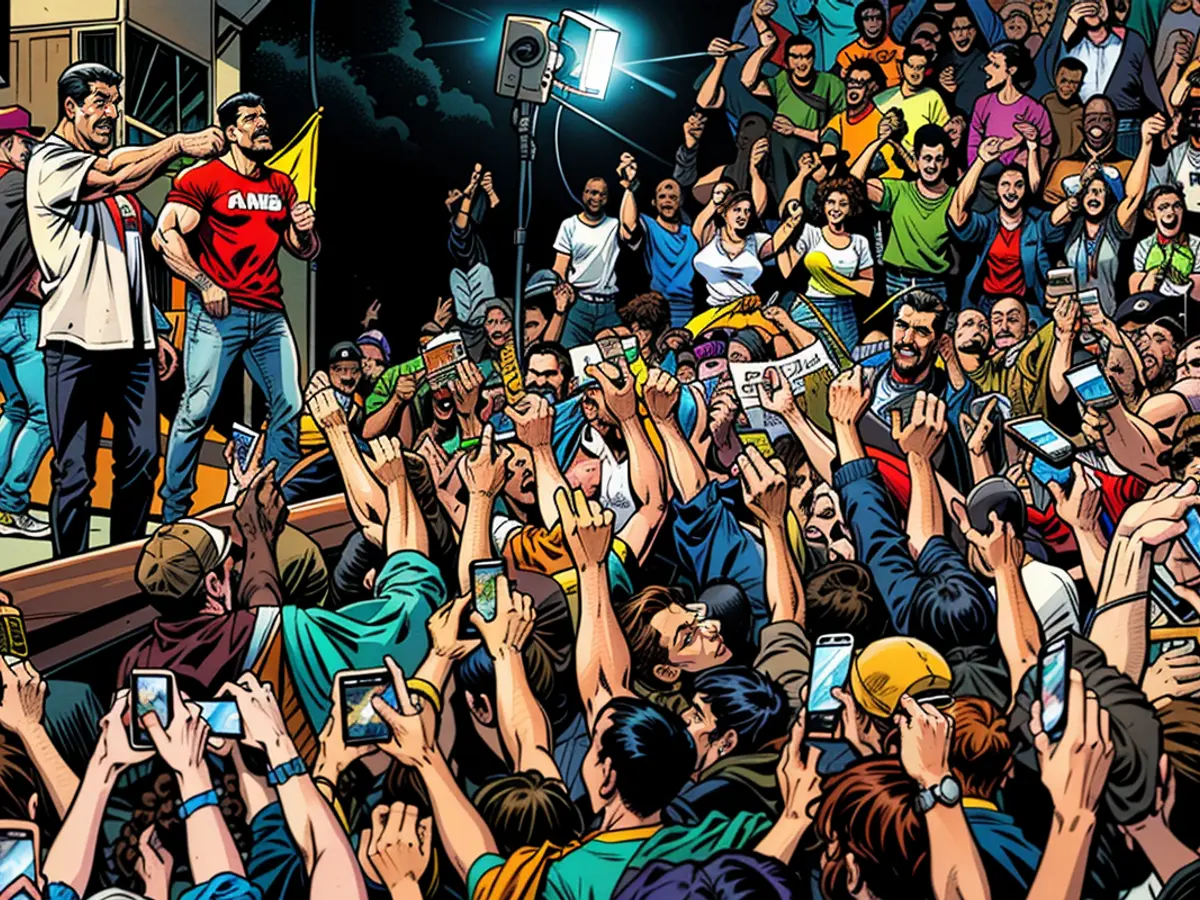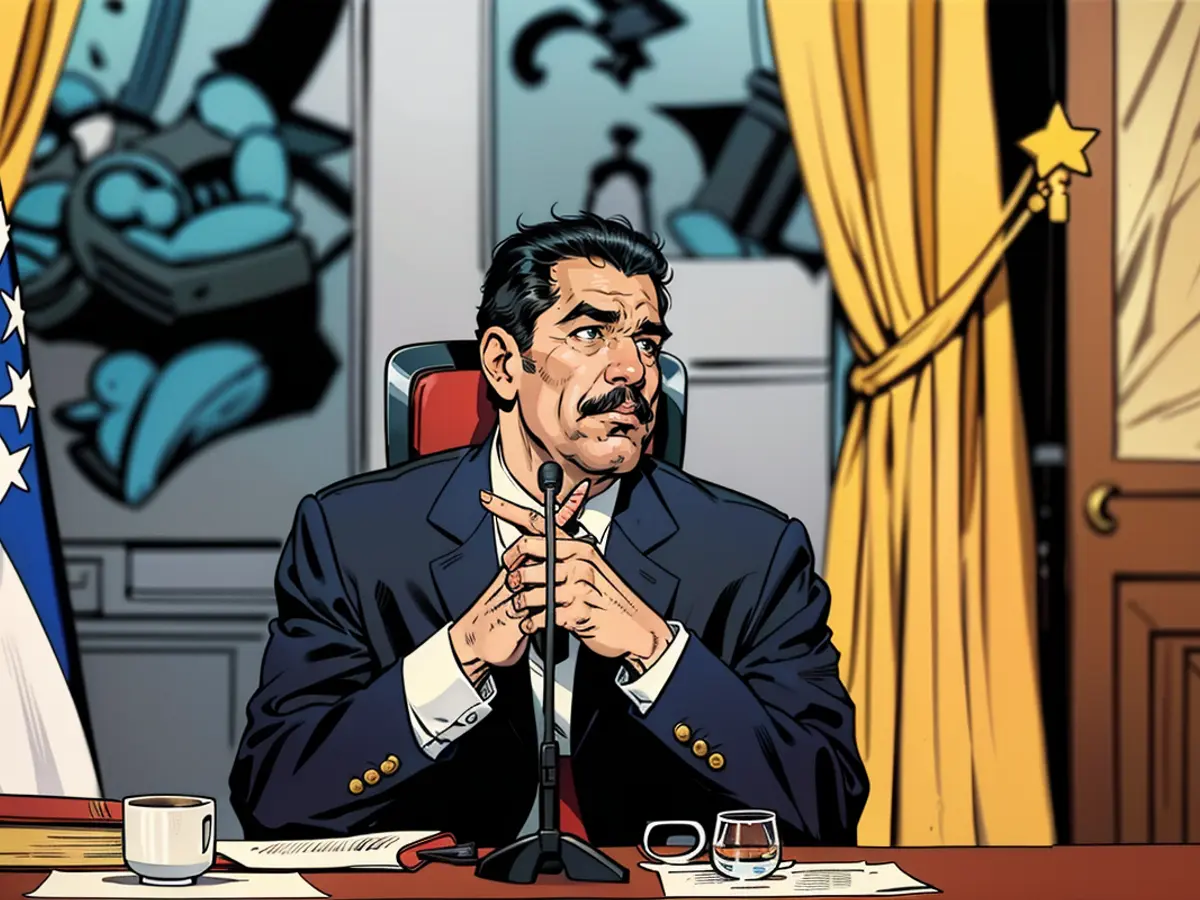CIA involvement, a Navy SEAL, and a $15 million reward. This purported scheme against Venezuela's Maduro bears the resemblance of a blockbuster movie scenario.
Last December, the United States obtained the release of 10 of its citizens, six of whom were unjustly detained, from Venezuela. This was in exchange for a close associate of President Nicolas Maduro's authoritarian regime and a promise from Caracas to stop using Americans as bargaining chips.
At the time, a US official expressed gratification, stating that further American detentions were not expected and assurances to that effect had been obtained.
This deal also involved the extradition of a notorious former military contractor, infamous for orchestrating the largest corruption scandal in US Navy history, and was widely seen as a sign of improving relations in the long-standing conflict between the two countries, which has seen the US slap sanctions on Venezuela and accuse its leadership of illegally seizing power, human rights abuses, and drug trafficking.
However, almost a year later, the mood has shifted to a more ominous tone.
Venezuela has declared that it has detained at least four more American citizens, along with a few foreign nationals, accusing them of being part of a CIA and Spanish intelligence plot to overthrow Maduro.
Both the US and Spanish governments have fiercely denied these allegations.
The US State Department deemed the claims "completely false" and hinted at a connection between the detentions and criticisms of Venezuela's controversial presidential election, which Maduro claims to have won despite widespread disbelief. The US maintains its commitment to a democratic resolution to Venezuela's political crisis, the State Department pointed out, when commenting on the allegations.
So, what credence can be given to Venezuela's claims? And what is Maduro's motivation for resorting to an old tactic?
Script for a Blockbuster Movie and a Convenient Scapegoat
The plot details, as outlined by Venezuela's Interior Minister, Diosdado Cabello, read like a plot from a Hollywood action movie. Cabello claims that the detained foreigners, including two Spaniards and a Czech, were part of a clandestine team sent to Venezuela to assassinate Maduro, driven by the up to $15 million bounty offered by the US Justice Department for information leading to Maduro's arrest or conviction in 2020.
According to Cabello, the plot involved not only the CIA but was masterminded by an active-duty US Navy SEAL and included a shipment of 400 seized US-made rifles and other weapons.
Two other US citizens, Cabello contends, were hackers planning to sabotage Venezuela's chronically inefficient power service. (Notably, Cabello has previously blamed "terrorist actions" by the opposition for a blackout that affected multiple Venezuelan states and dozens of cities, including the capital Caracas, in August 2020.)
White House spokesperson John Kirby acknowledged that the man Venezuela identified as the ringleader, Wilbert Castañeda, is a serving US Navy member who traveled to Venezuela on "personal leave." Other media outlets have reported that Castañeda, a dual Mexican-US citizen and former Navy SEAL, lost his SEAL status at some point in the past.
Given the provocative nature of the allegations, it's nearly impossible to independently establish their veracity.
However, skeptics might argue that this is exactly Maduro's intention - to use the CIA as a convenient, time-tested bogeyman.
Maduro has previously accused the US government and former US President Donald Trump of masterminding a 2018 assassination attempt using an explosive-laden drone during one of Maduro's speeches (an "attack" prosecutors initially tried to link to then-Colombian President Juan Manuel Santos). Maduro has also frequently accused the CIA and the US in general of being behind an April 2019 insurrection and the September 2020 detention of US citizen Matthew Heath on charges of spying on oil refineries in the state of Falcon. Heath was later released in a prisoner exchange, and the US has consistently denied involvement in any of the alleged schemes.
It is worth noting, however, that Maduro is well-aware of the existence of a segment of the population that is receptive to such narratives, primarily because of the CIA's well-documented history of meddling in the region. Moreover, it's not lost on Maduro that the US was aware of a plot to overthrow his predecessor, Hugo Chavez, just weeks before a coup attempt in 2002.
Yet, even among high-ranking government officials who suspect that security services have uncovered a plot, there are some who are skeptical of Cabello's CIA involvement claims.
“I believe these are more loose cannons than real US government involvement,” one government source said, requesting anonymity due to the sensitive nature of the issue. “But you cannot ignore the allure of the ($15 million Department of Justice) reward, especially for thrill-seekers or do you really believe a Navy SEAL on active duty traveled to Venezuela for a summer romance?” the source mused.
One scenario that hasn't been considered in Caracas' power circles is the possibility of a plot originating within Venezuela itself. That may seem unexpected, given Maduro's alienation of a significant portion of the population and frequent personnel changes in his government.
While it's not impossible to consider ex-Chavistas plotting to oust Maduro, a more plausible scenario might be that Maduro is manipulating this situation for political gain against his adversary, the US.

If Maduro is indeed behind this, what does he stand to gain?
A Bargaining Chip?
The most obvious connection leads us back to the elections. Prior to the release of "Fat Leonard" and his associates, Maduro had promised the US that Venezuela's elections would be fair and free. Six months ago, there were hopes in Caracas' economic circle that the election might be at least fair enough for the US to lift its remaining oil sanctions and reintegrate Venezuela into the community of democratic nations.
The sham election and Maduro's failure to uphold his commitment to democracy dashed these hopes, making any further progress towards reconciliation an arduous process of negotiation for diplomats.
Maduro appears to be viewing the detained Americans as instruments for these negotiations, with the aim of silencing US critiques of the election and as a bargaining chip for sanctions negotiations.
This strategy sends a message to US President Joe Biden, whose administration has prioritized releasing unjustly detained US citizens, having made deals with Russian President Vladimir Putin over the release of WNBA star Brittney Griner and Wall Street Journal journalist Evan Gershkovich.
Beyond Biden, the detentions are also a warning to any potential new Commander in Chief, be it Kamala Harris or Donald Trump.
Since the controversial vote in Venezuela, the US response has been minimal, imposing personal sanctions on 16 individuals and urging Venezuela to release the complete voting records to clarify the outcome. Despite international outrage this summer, a special authorization allowing oil company Chevron to operate in the country remains valid.
Whichever candidate wins the US election in November will bear the detainees' fate in mind when deciding whether to maintain the present approach or to tighten the screws.
And they can forget about leaving the detainees' fate to the courts.
As a lawyer who represented US citizens wrongfully detained in Venezuela in the past noted, "You cannot even talk of a trial, to be honest. In most cases, there's no file with the charges presented against your client, you don't have access to the investigation, there are no witnesses, and you cannot present new evidence – all of those proceedings happen in a court, but they're a farce."
"It's frustrating – you basically go to court, and you know nothing ruled there will make any difference for your client," said another lawyer, whose client was released after spending over two years in jail without being sentenced.
So, what's Maduro's endgame?
For those who believe Maduro is fabricating this plot for political gain, one question remains: what's his ultimate goal?
In past prisoner exchange negotiations, Maduro was able to secure the release of his alleged financial fixer, Alex Saab, and two of his wife's nephews who were serving time for attempting to smuggle 800 kilograms of cocaine into the US. He also managed to get some of the oil sanctions the US imposed on Caracas lifted.
This time, with none of his close associates in US custody, it's uncertain what Maduro could demand at the bargaining table other than acknowledgment and further sanctions relief.
Likewise, it's uncertain how a new US administration would tolerate the concept of appeasing – and appearing to appease – a dictatorial bully.
Hostage negotiation is a delicate topic for any government, especially the United States, which has historically rejected negotiating with kidnappers.
On the other hand, the US might decide that the freedom of its citizens is worth any limited concessions Maduro seeks.
As one of the people involved in last year's negotiations said, "Free societies decide that no innocent man should be in jail. When you accept that a criminal walks free but no detainee is innocent, that is real freedom."

Despite the exchange of prisoners between the United States and Venezuela last December, tensions between the two countries have persisted. Recently, Venezuela has accused the US and Spain of being involved in a plot to overthrow President Nicolas Maduro, detaining several American citizens and foreign nationals in the process.
This allegation, if true, would rise to global significance, as the Americas and the world closely watch the ongoing conflict between the US and Venezuela. The detentions have led to a rapid shift in the atmosphere, moving from reassurances of no further American detentions to suspicions of a new conspiracy.







